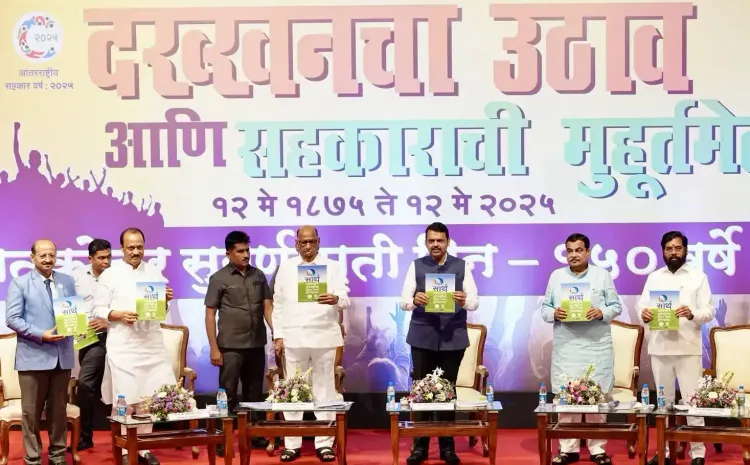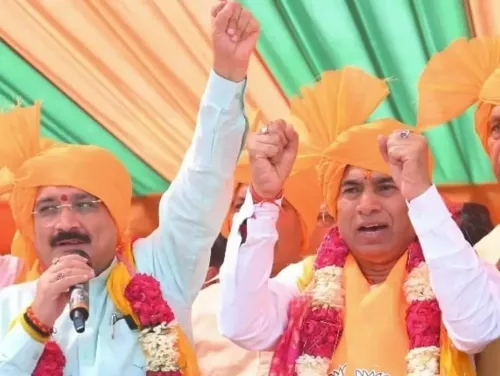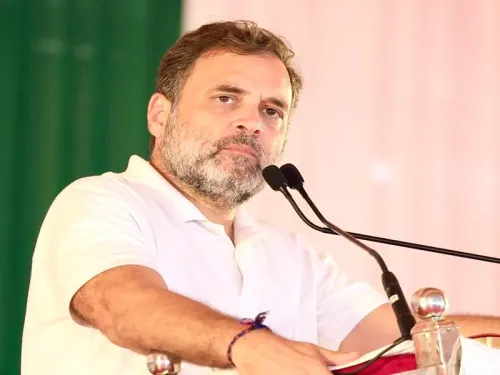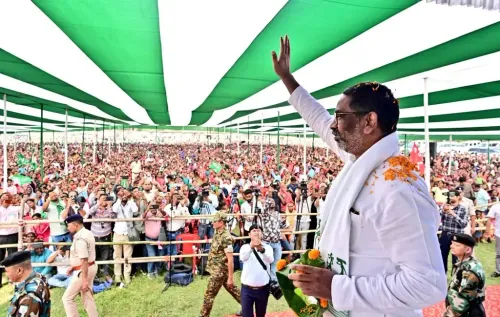Will a Committee Revamp the Cooperative Act? Maha CM Speaks

Synopsis
Key Takeaways
- Formation of a committee for amending the Cooperative Act.
- Modernization of cooperative banks through technology.
- Empowerment of the cooperative movement nationally.
- Support for rural economies via cooperatives.
- New initiatives for cooperative housing societies.
Mumbai, May 12 (NationPress) Chief Minister Devendra Fadnavis announced the formation of a committee tasked with recommending essential modifications to the Cooperative Act.
“The current Cooperative Societies Act requires updates to meet modern needs. It is imperative that justice is served to all entities involved in the cooperative sector through this Act,” he emphasized during his address at a symposium for International Cooperative Day, hosted by Maharashtra State Cooperative (MSC) Bank.
In response to Union Minister Nitin Gadkari’s remarks advocating for a new law tailored to the cooperative sector's evolving landscape, CM Fadnavis stated, “We must incorporate new sections pertinent to every sector into the law. This committee will be responsible for proposing the necessary amendments.”
Highlighting the adaptability of cooperative banks, CM Fadnavis remarked, “These banks have embraced modern technology and core banking systems, ensuring they provide essential services to customers. Their resilience during 'fiscal consolidation' has been commendable. The cooperative sector's origins trace back to the uprising against moneylenders in Supe, Pune district on May 12, 1875, marking a significant milestone that we celebrate today, 150 years later.”
He also noted that Prime Minister Narendra Modi has established a dedicated Ministry of Cooperatives, aimed at empowering the cooperative movement nationwide. “This initiative is significantly enhancing the rural economy.”
“With support from the World Bank, training programs for cooperatives are being rolled out in 10,000 villages, focusing on developing sustainable business models. This collaboration has reinvigorated agricultural businesses,” the Chief Minister added.
He pointed out that cooperative sugar factories are diversifying their production to include by-products, which helps them remain competitive globally.
“Concerns have been raised regarding electricity costs impacting cooperative spinning mills’ competitiveness. The government is providing electricity subsidies, and we are transitioning all spinning mills to solar energy to address these challenges,” he stated, emphasizing the importance of supporting processing industries through cooperatives.
“Approximately 50% of cooperative societies are housing societies. The previous amendment to the Cooperative Act included a specific chapter for these societies, establishing a robust framework. A new initiative for self-redevelopment of cooperative societies is underway, where the government is offering 17 different concessions. This effort is ensuring citizens secure their rightful homes in Mumbai. A committee led by MLA Praveen Darekar is also focusing on this self-redevelopment,” he continued.
CM Fadnavis concluded by asserting that a well-informed decision will be made following a comprehensive study aimed at utilizing cooperative banks for state government transactions on a larger scale.
Deputy Chief Minister Eknath Shinde asserted that the cooperative sector is pivotal to India’s aspirations of becoming a superpower. “The establishment of the Ministry of Cooperation has sparked significant reforms within the cooperative sector nationally. Initiatives like Rural Marts, supported by NABARD, have strengthened the movement, which has been further empowered by initiatives such as the Kisan Credit Card and Micro ATMs. These developments are substantially boosting the rural economy. The Maharashtra Cooperative Bank holds the title of the largest bank in the cooperative sector, boasting a turnover of Rs 62,000 crore,” stated Dy CM Shinde.
Dy CM Ajit Pawar remarked on the historical significance of the 150-year-old revolt against moneylenders in Supe, acknowledging it as the foundation of the cooperative sector. “While the cooperative movement has made significant strides, it must be fortified to tackle future challenges,” he emphasized, suggesting that the Maharashtra State Cooperative Bank compile a comprehensive report on the history of this movement.









